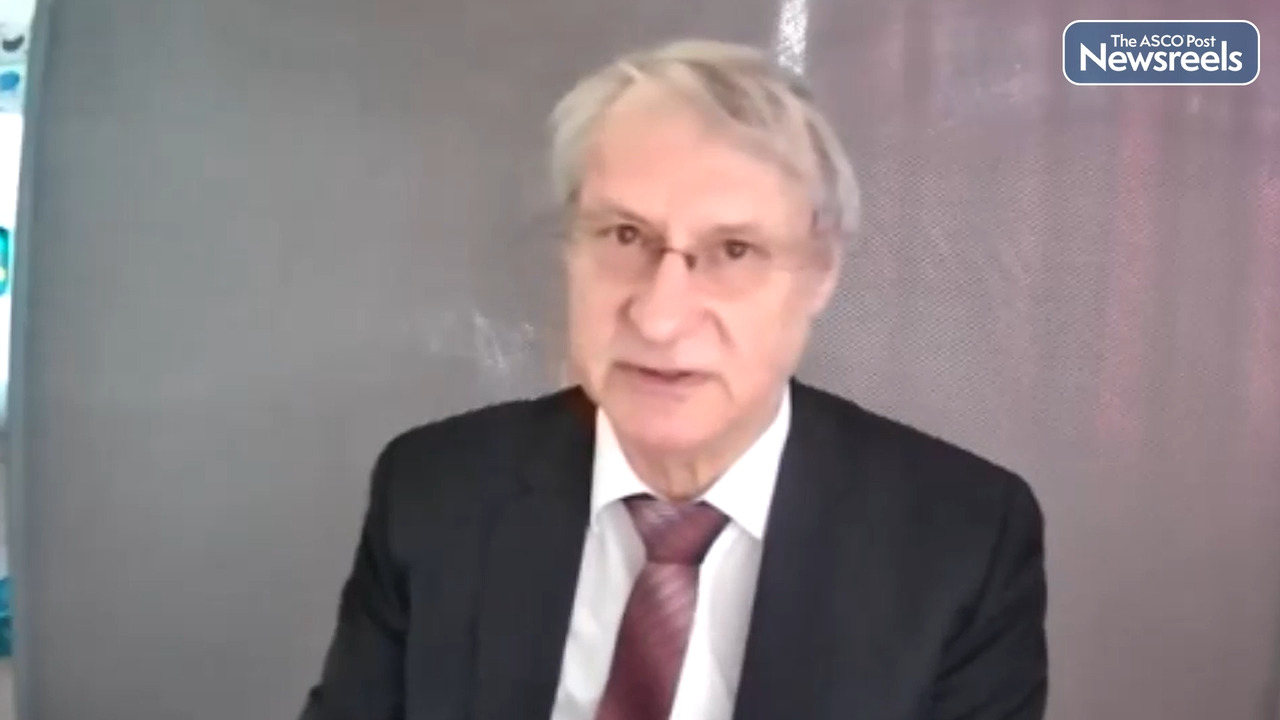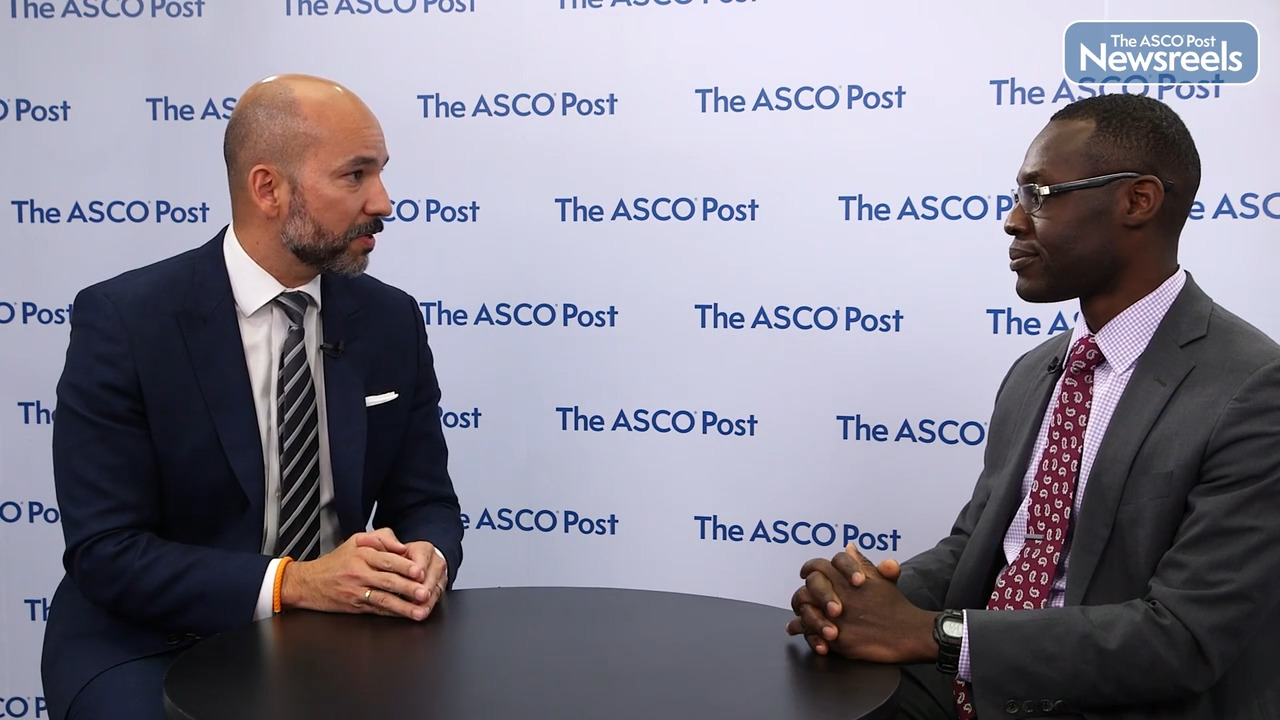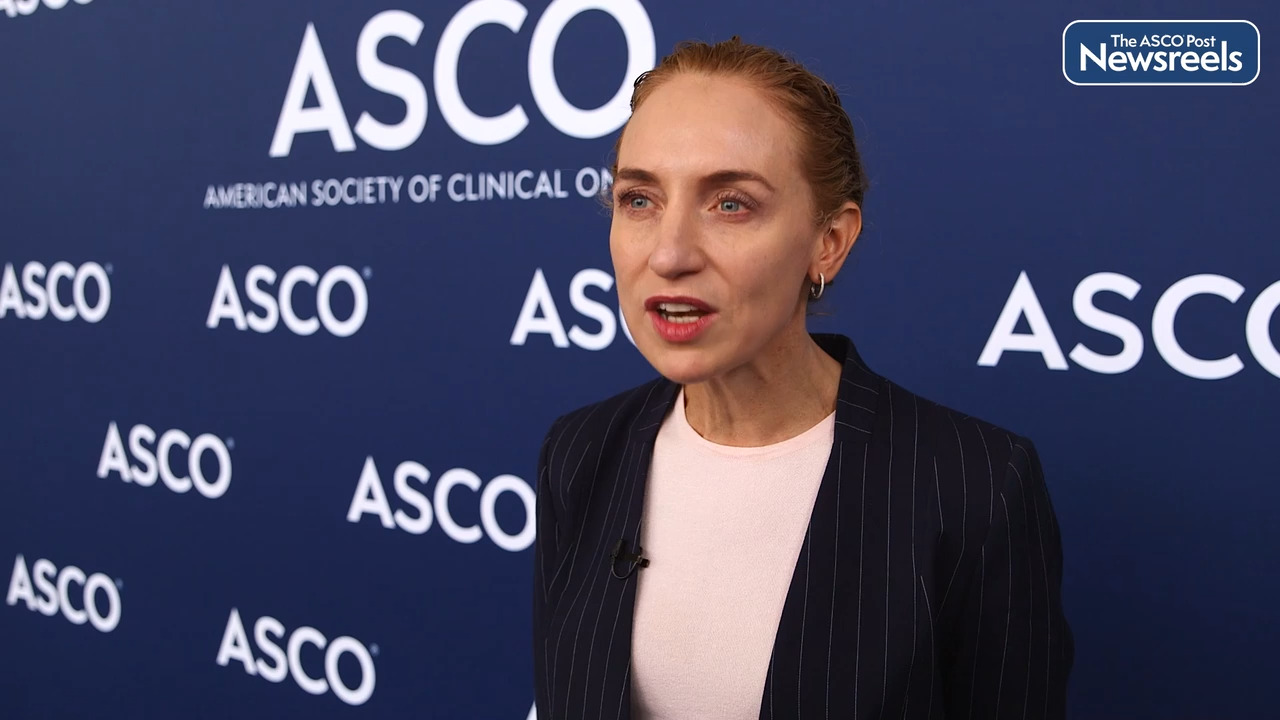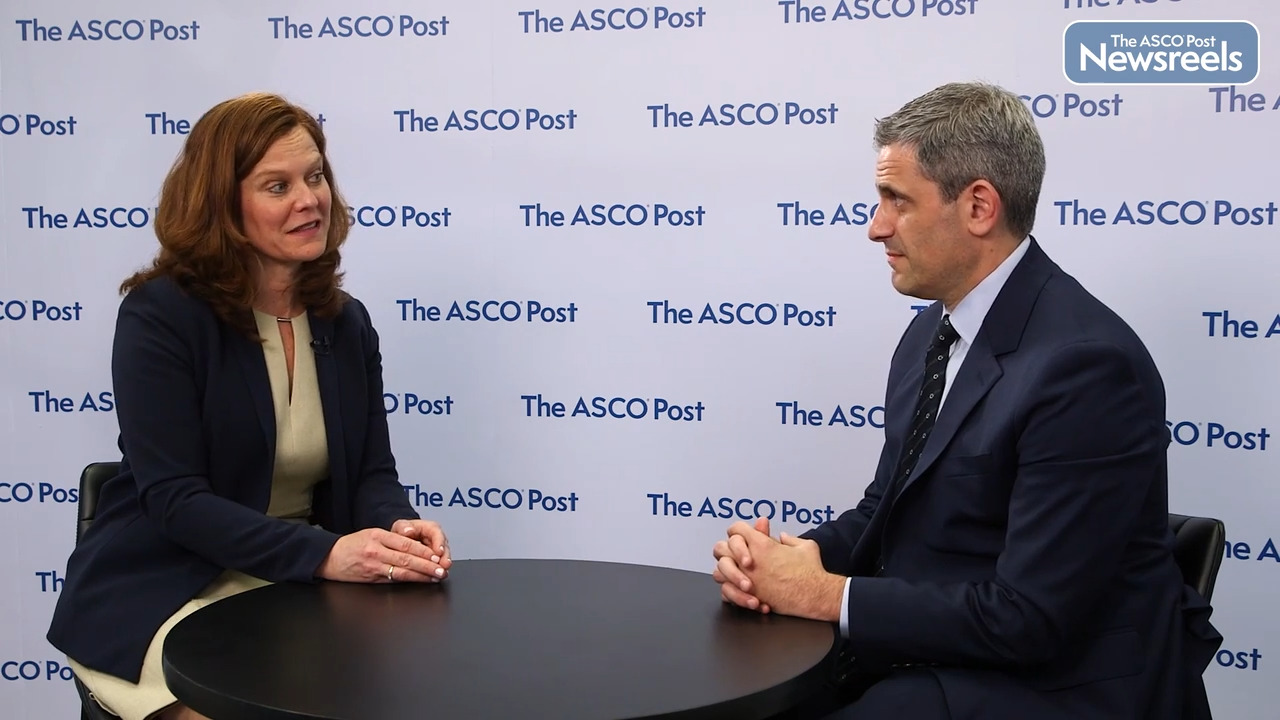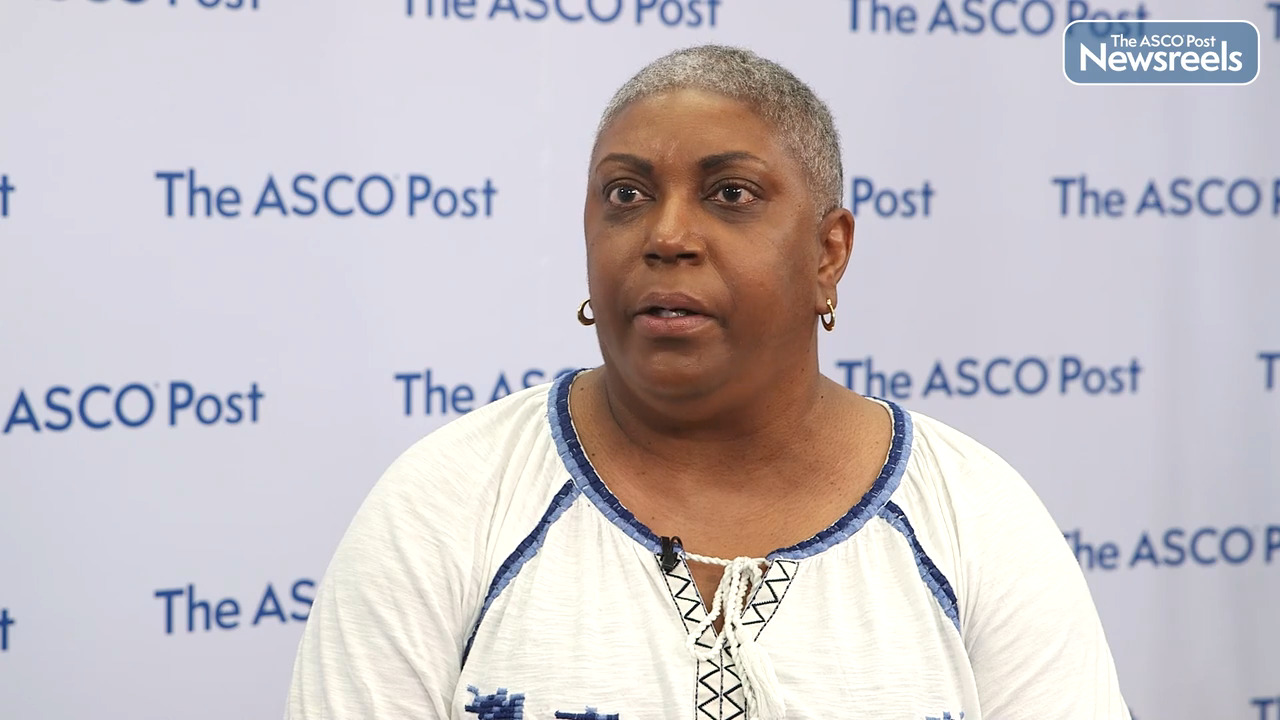Eunice S. Wang, MD, on AML: Long-Term Results With Crenolanib Plus Chemotherapy
2022 ASCO Annual Meeting
Eunice S. Wang, MD, of Roswell Park Comprehensive Cancer Center, discusses long-term phase II findings of a trial evaluating crenolanib plus chemotherapy in newly diagnosed adults with FLT3-mutant acute myeloid leukemia. The study showed a composite complete remission rate of 86%. With a median follow-up of 45 months, median overall survival has not been reached. A phase III trial is ongoing (Abstract 7007).
Transcript
Disclaimer: This video transcript has not been proofread or edited and may contain errors.
We designed a phase II clinical trial evaluating crenolanib added to standard 7+3 intensive chemotherapy for adults with newly diagnosed FLT3 AML. The purpose of this study was to examine the efficacy of adding this novel FLT3 tyrosine kinase inhibitor to standard intensive chemotherapy based on prior results of single agent crenolanib activity in heavily pretreated relapse and refractory FLT3 mutant adult patients. Crenolanib is a pan-FLT3 inhibitor with activity against both the active and inactive formations of FLT3 and has activity against both FLT3, ITD, and TKD mutations.
We designed this study to combine it with intensive chemotherapy, for which the standard of care is currently midostaurin plus 7+3 chemotherapy. A total of 44 patients were enrolled on this study, 29 younger than equal to 60 years of age, and 15 older than 60 years of age. 91% of patients had de novo disease, 75% with FLT3 ITD mutations and 18% with TKD mutations. Overall, patients were enrolled in standard intensive therapy with physicians choice of anthracycline, daunorubicin, or idarubicin plus infusional cytarabine for 7 days, followed by crenolanib started at 24 to 48 hours after chemotherapy and continued until 72 hours prior to next chemotherapy cycle. Patients were allowed to get consolidation with high-dose cytarabine or go on to transplantation, followed by 12 months of maintenance crenolanib following either chemo or transplant.
The overall remission rate in this trial was 86%. Younger patients younger than are equal to 60 years of age had a CR/CRI rate of 90%, and individual's greater than or equal to 60 years of age had an overall response rate of 80%. At 45 months of long-term follow up, the event-free survival for all 44 patients enrolled in this trial was 45 months. The median overall survival was not reached. In younger patients younger than 60 years of age, the median overall survival was not reached, with 71% of patients alive at 3 years after enrollment on this study. The overall cumulative rate of relapse in patients was 33%, and 15% in patients younger than 60. Of note, patients undergoing transplantation in this younger cohort had similar cumulative rate of relapse than patients getting chemotherapy alone.
In conclusion, we think that this combination regimen shows high efficacy, safety, and tolerability as compared to standard 7+3 plus midostaurin. A phase III trial of this combination approach is currently accruing using midostaurin 7+3 as its control arm. Results of this trial are eagerly awaited.
Related Videos
The ASCO Post Staff
Rainer Fietkau, MD, of Germany’s University Hospital Erlangen, discusses phase III findings of the CONKO-007 trial, which examined the role of sequential chemotherapy and chemoradiotherapy administered to patients with nonresectable locally advanced pancreatic cancer following standard-of-care chemotherapy (Abstract 4008).
The ASCO Post Staff
Gilberto de Lima Lopes, Jr, MD, MBA, of Sylvester Comprehensive Cancer Center at the University of Miami, and Oladimeji Akinboro, MD, MPH, of the U.S. Food and Drug Administration (FDA), discuss a data analysis, which suggests that most subgroups of patients with advanced non–small cell lung cancer with a PD-L1 score of 50% or greater who are receiving FDA-approved chemotherapy/immunotherapy regimens may have overall survival outcomes comparable to or better than immunotherapy-alone regimens (Abstract 9000).
The ASCO Post Staff
Georgina V. Long, MD, PhD, of the Melanoma Institute Australia, The University of Sydney, discusses findings from the NeoTrio trial on neoadjuvant pembrolizumab alone, in sequence with, or concurrent with dabrafenib plus trametinib in patients with resectable BRAF-mutant stage III melanoma. The study may help clinicians determine the optimal combination of therapy (Abstract 9503).
The ASCO Post Staff
Ann H. Partridge, MD, MPH, of Dana-Farber Cancer Institute, and Kevin Kalinsky, MD, of Winship Cancer Institute at Emory University, discuss phase II findings from the MAINTAIN trial, which showed a benefit in progression-free survival for patients with hormone receptor–positive/HER2-negative metastatic breast cancer when they switched to endocrine therapy and received ribociclib after disease progression on another CDK4/6 inhibitor (Abstract LBA1004).
The ASCO Post Staff
Stephanie Walker, a former nurse and current activist with the Metastatic Breast Cancer Alliance, discusses findings from the BECOME project (Black Experience of Clinical Trials and Opportunities for Meaningful Engagement). They show that, even though Black patients comprise between 4% and 6% of all clinical trial participants, Black women with metastatic breast cancer are willing to consider taking part if steps were taken to increase their awareness, build trust through clear communication with health-care providers, involve people of shared racial/ethnic identity and health experience, and help patients find and access trials (Abstract 1014).
